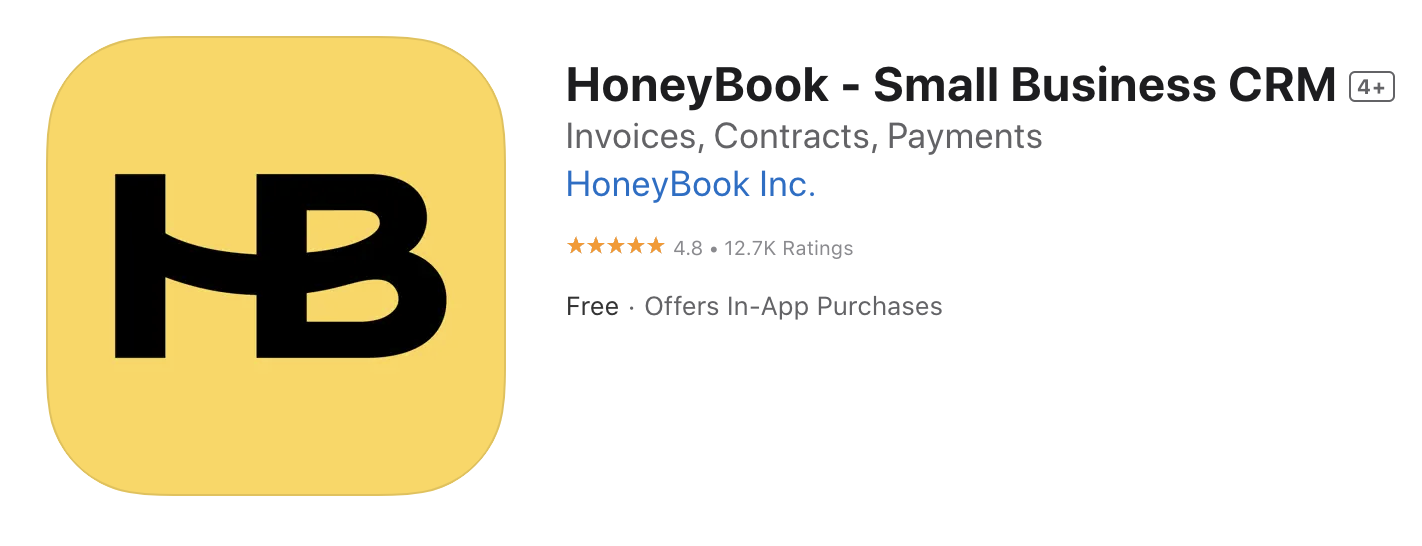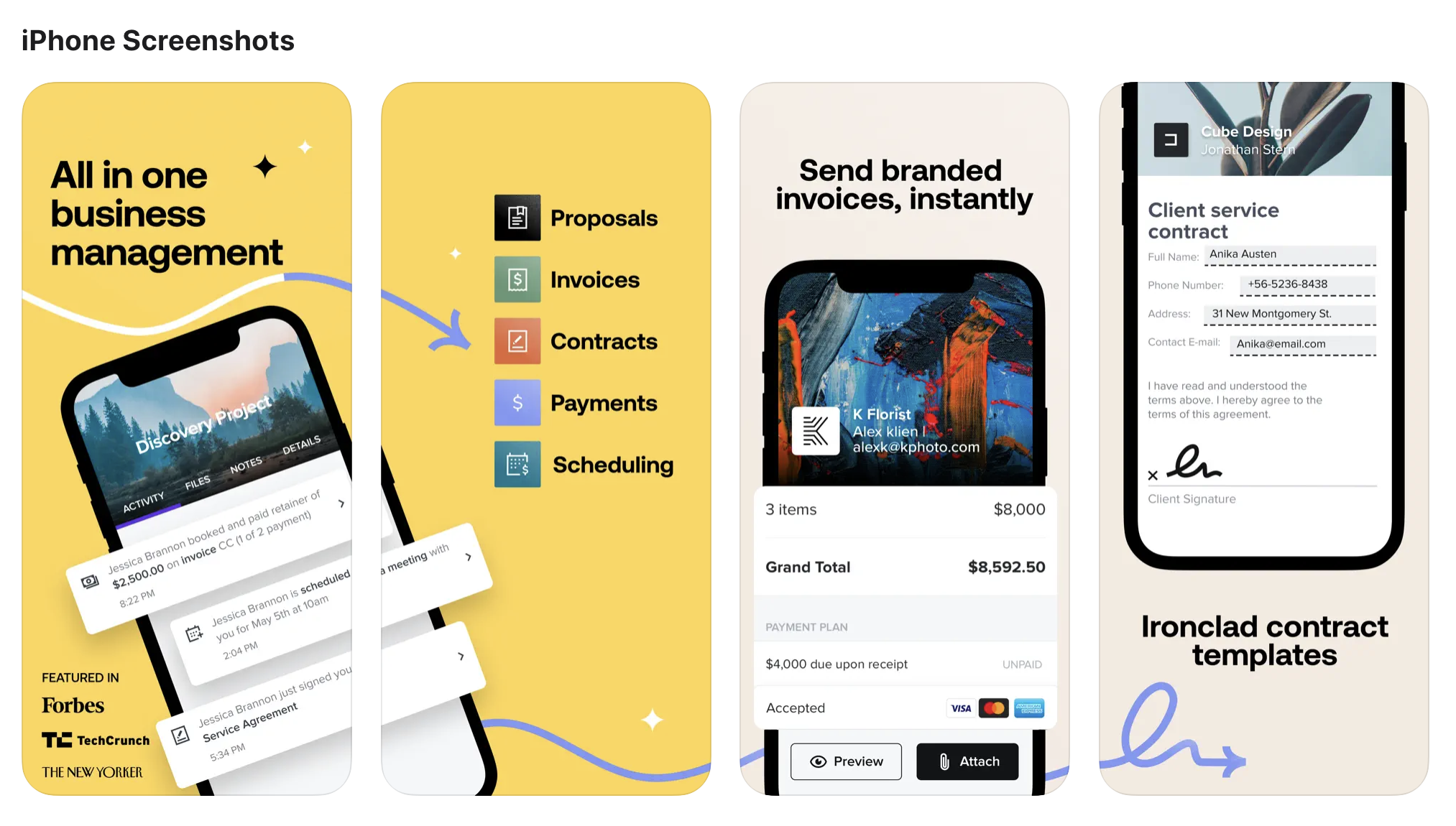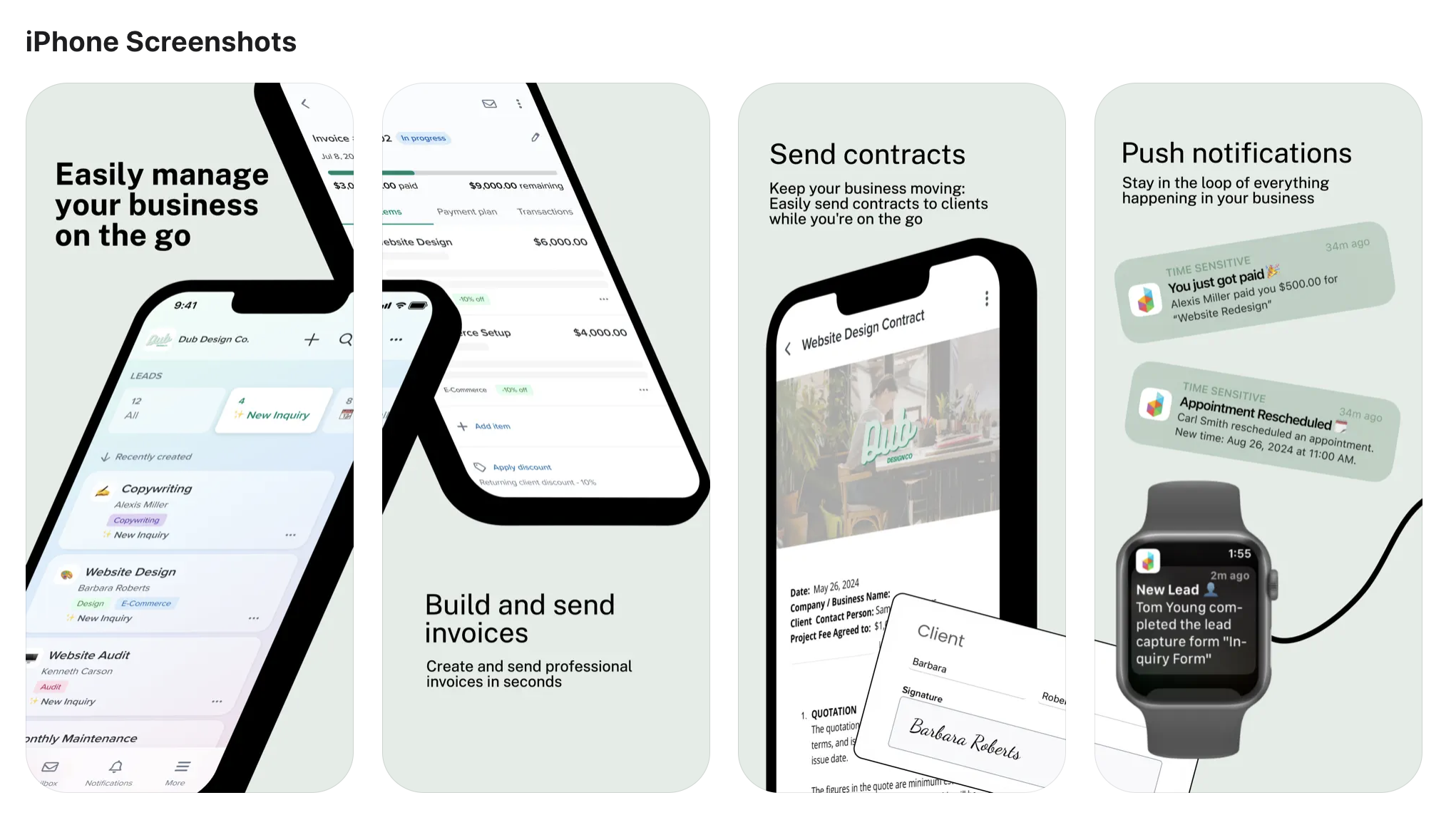
App Store Spotlight: Orbit - Time-Based Invoicing
Posted on April 17th, 2025
Discover how Orbit can boost visibility and conversions with smarter keywords, optimized creatives, and a stronger App Store presence.

Running a small business comes with its share of challenges—managing clients, processing payments, tracking projects, and staying on top of invoices can become overwhelming fast. This is where HoneyBook steps in. Positioned as an all-in-one client relationship management (CRM) platform, HoneyBook provides freelancers and small business owners with a comprehensive solution to simplify and streamline their day-to-day workflows.
With over 100,000 small business owners already using it to manage contracts, payments, and projects, HoneyBook has solidified its reputation as a trusted tool within the small business community. But how well does it perform when it comes to its app store presence? In this review, we’ll explore its app store performance, including visibility, metadata optimization, and creative elements, to see where HoneyBook excels and where improvements could boost its presence even further.

Metadata plays a pivotal role in how apps are ranked and discovered in the App Store. Here’s a closer look at HoneyBook’s current metadata:
HoneyBook has strategically utilized the high-volume keyword “small business CRM,” which is essential for connecting with its core audience of freelancers and small business owners. This keyword is particularly effective because it speaks directly to the app's primary purpose, ensuring that it appears in relevant searches.
In the context of App Store Optimization (ASO), using targeted keywords like this is vital for improving visibility in a crowded marketplace. The subtitle reinforces this strategy by highlighting key functionalities, such as contracts and invoicing, which are critical pain points for small business owners. By addressing these specific needs, HoneyBook not only captures attention but also positions itself as a solution-oriented app that resonates with potential users.
The subtitle “Invoices, Contracts, Payments” effectively communicates key functionalities that appeal directly to the target audience, many of whom are looking for comprehensive solutions to manage their business operations. This alignment of keywords and messaging is crucial for ASO, as it helps set clear expectations for users right from the search results page, increasing the likelihood of downloads.
By combining strong keyword usage with a user-centered message, HoneyBook strengthens its competitive edge in the app store, making it easier for potential customers to discover and choose the app over others. This targeted approach not only enhances visibility but also positions HoneyBook as a reliable tool that can simplify essential business tasks, further driving potential user engagement and downloads.
While the current metadata is clear, it could benefit from the inclusion of additional keywords that reflect more of the app’s capabilities. For example, it could be worthwhile incorporating terms like “bookings,” “scheduling,” or “business manager” that could help expand HoneyBook’s visibility and appeal to a broader range of business owners who need more than just contract and invoice management. Balancing branding with keyword optimization in the subtitle could also be a powerful way to make the app more discoverable without sacrificing its messaging.
To improve its discoverability, HoneyBook should enhance the diversity of keywords used in its metadata by incorporating high-volume terms like "client management" and "automations." This would broaden the app's reach to a wider audience searching for specific features.
Expanding the feature highlights within the metadata would provide potential users with a clearer understanding of the app’s full range of capabilities. By including more detail on functions such as scheduling, project tracking, and invoice management, HoneyBook could more effectively communicate its versatility and value to small business owners and freelancers alike.

First impressions are critical in app store searches. Users' first interaction with HoneyBook comes through its icon and screenshots on iOS, which demonstrate key functionalities.
HoneyBook’s app icon is clean and professional, featuring the brand’s logo in a minimalistic design, which is effective for branding. However, a larger focus on creative assets such as screenshots and videos is crucial in convincing users to download the app.
HoneyBook could incorporate more high-volume keywords directly into the text overlays within its screenshots. By doing so, it would better align its visual assets with user search behavior, making it easier for potential customers to connect the app’s features with their needs.
Expanding the variety of screenshots to showcase the full range of HoneyBook’s features—beyond just contracts and invoices—would give users a more comprehensive understanding of its capabilities. Highlighting elements such as automation, scheduling, and expense management could significantly increase its appeal and draw in a broader audience.

To provide further context, let’s compare HoneyBook with one of its main competitors in the small business CRM space: Dubsado.
Dubsado uses a similarly structured title and subtitle:
Expanded keywords: Dubsado incorporates more specific, high-traffic keywords like "projects" and "contracts" in both its title and subtitle. This likely helps with its discoverability for users searching for more detailed functionality.
Screenshots and Clarity: HoneyBook excels in its visual presentation. Its screenshots are clear, concise, and well-organized, ensuring that potential users quickly understand its key features like invoicing and project management. In contrast, Dubsado’s screenshots suffer from smaller font sizes, making it difficult for users to grasp the full value of the app at a glance. HoneyBook’s less cluttered approach makes it more user-friendly and more likely to convert users at first sight.
By focusing on clear visuals and concise text, HoneyBook gives users a better first impression, which could lead to more downloads. With slight adjustments to its metadata and creative assets, HoneyBook could further enhance its competitive edge against Dubsado and other CRM apps in the market.
HoneyBook is a powerful tool for small business owners and freelancers, offering an array of features that simplify operations. However, there is still room for improvement when it comes to its app store presence. By refining its metadata to include more high-volume keywords and expanding its creative assets to highlight a broader range of features, HoneyBook could elevate its visibility and better compete with other CRM apps like Dubsado.
Making these updates will not only enhance HoneyBook’s discoverability but also help it attract more potential users, converting those first impressions into long-term customers. HoneyBook already stands out in terms of its functionality—now it’s just a matter of ensuring that potential users can find it as easily as possible.

Discover how Orbit can boost visibility and conversions with smarter keywords, optimized creatives, and a stronger App Store presence.

Explore how Home Contents can improve its App Store listing with smarter ASO tactics, from stronger keywords to better screenshots and video strategy.

Discover how onX Offroad can enhance its App Store presence with smarter ASO strategies, from metadata tweaks to creative optimizations.